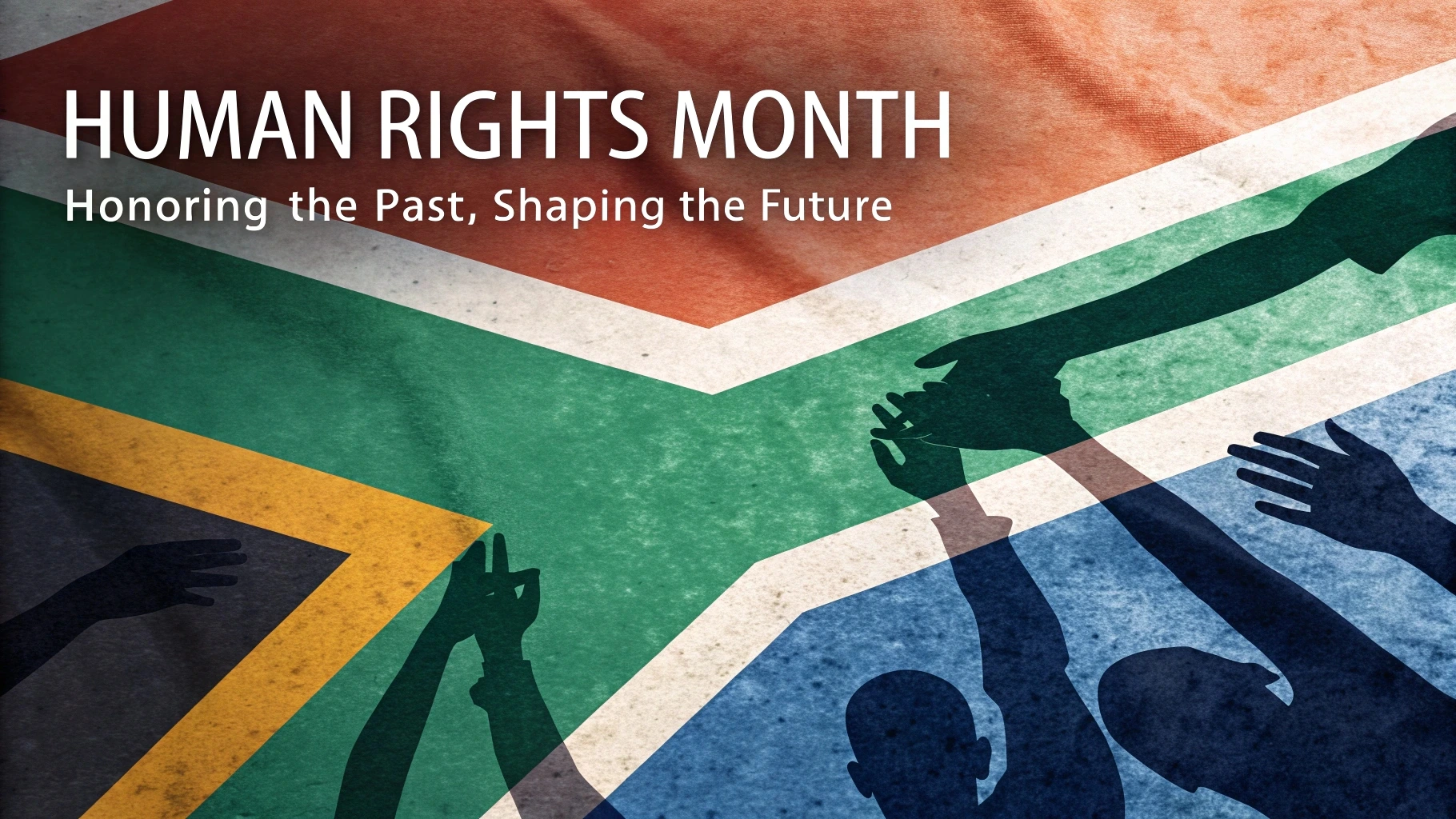Human Rights Month in South Africa is a crucial observance held every March, dedicated to reflecting on the nation’s struggle for freedom, dignity, and equality. Central to this month is Human Rights Day on March 21st, a public holiday that commemorates the sacrifices made in the fight against apartheid and highlights the ongoing need to uphold human rights. The month serves as a time for education, reflection, and action in fostering a society built on justice and equality.
The History of Human Rights Month in South Africa
The observance of Human Rights Month is deeply rooted in South Africa’s history, particularly the Sharpeville Massacre of March 21, 1960. On this day, 69 peaceful protesters were killed by apartheid police for opposing the oppressive pass laws. The massacre exposed the brutality of the apartheid regime and intensified both national and international resistance against racial oppression.
In addition to Sharpeville, South Africa also remembers the Uitenhage/Langa killings of March 21, 1985, when 35 more individuals lost their lives in anti-apartheid demonstrations. These tragic events cemented March 21st as a turning point in South Africa’s fight for democracy, ultimately leading to the constitutional recognition of fundamental human rights after 1994.
Key Human Rights in South Africa
The end of apartheid ushered in the adoption of the 1996 Constitution, which includes the Bill of Rights (Chapter 2) one of the most progressive human rights charters globally. This Bill guarantees key freedoms, including:
- Equality – Every individual is equal before the law and is entitled to equal protection.
- Human Dignity – Every person has inherent dignity and the right to have it respected.
- Freedom of Movement – The right to reside anywhere in South Africa.
- Education – The right to basic and further education.
- Freedom of Expression – The right to voice opinions and access independent media.
- Privacy – Protection from unlawful searches or infringements on personal life.
- Access to Justice – Fair and accessible courts for all.
Despite these rights being enshrined in law, violations persist, and Human Rights Month serves as a reminder to address them.
How Human Rights Month is Celebrated
Various governmental, civil society, and educational institutions organize events to commemorate Human Rights Month. Activities include:
- Official Commemorations – The President of South Africa delivers a keynote address at Sharpeville or another significant location.
- Educational Campaigns – Schools, universities, and NGOs hold discussions on human rights issues.
- Community Engagements – Programs focus on promoting social cohesion and addressing ongoing challenges such as racism, xenophobia, and gender-based violence.
- Conferences and Panels – Legal experts, activists, and policymakers assess the progress of human rights protections in South Africa.
The Ongoing Fight for Human Rights in South Africa
While South Africa has made significant progress since the apartheid era, challenges remain. Key issues include:
- Gender-Based Violence (GBV) – A critical concern, with ongoing efforts to implement stricter laws and support services for survivors.
- Economic Inequality – Disparities in wealth, employment opportunities, and access to resources continue to affect marginalized communities.
- Xenophobia and Discrimination – Periodic outbreaks of xenophobic violence highlight the need for stronger protection of foreign nationals.
- Access to Basic Services – Problems such as inadequate sanitation in schools (e.g., pit latrines) violate children's rights to education, safety, and health.
How South Africans Can Get Involved
Every individual has a role to play in advancing human rights. Here’s how you can contribute:
- Attend Human Rights Events – Participate in public discussions and community dialogues.
- Join Advocacy Groups – Support organizations working to protect vulnerable communities.
- Educate Yourself and Others – Read about human rights issues and share knowledge.
- Use Social Media for Awareness – Hashtags like #HumanRightsMonth2025 can help spread awareness.
- Volunteer for Community Projects – Support initiatives that provide aid and assistance to disadvantaged groups.
Conclusion
Human Rights Month is more than just a reflection of South Africa’s past—it is a call to action for its future. As the nation marks another year of democracy, citizens must continue to uphold the principles of dignity, equality, and justice. By actively participating in human rights advocacy, South Africans can ensure that the sacrifices of the past lead to a better, more inclusive future for all.
